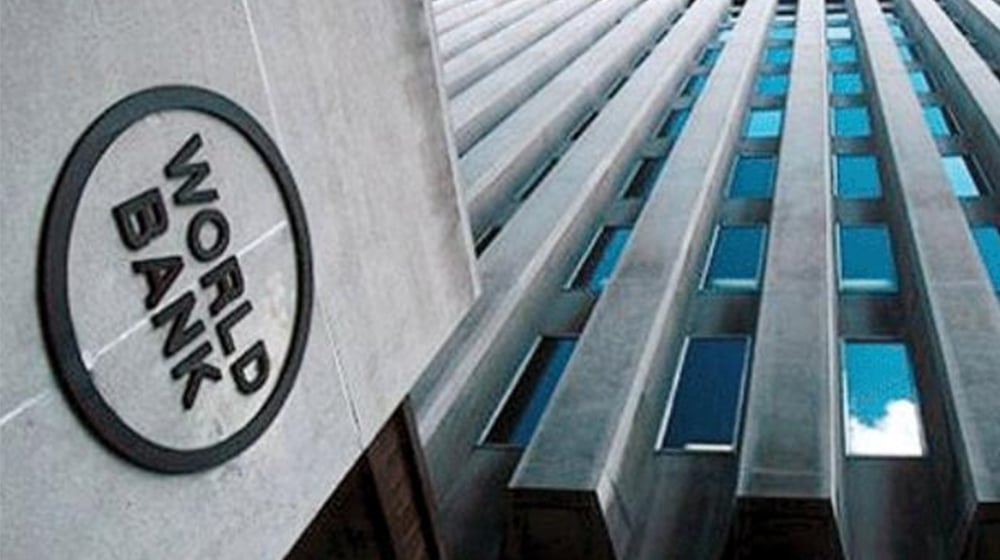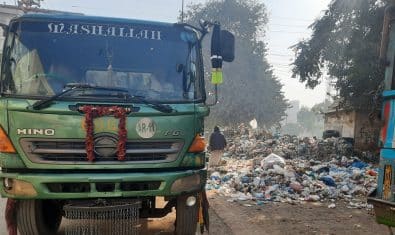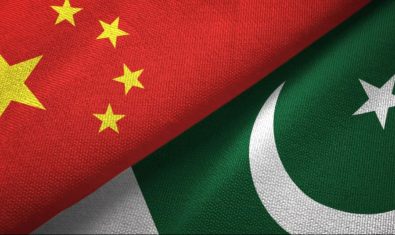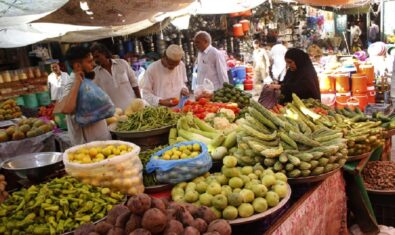The World Bank’s Board of Executive Directors will consider the approval of “Pakistan: Digital Economy Enhancement Project (DEEP)” worth $78 million on Friday.
The project is aimed at enhancing the government’s capacity for digitally-enabled public service delivery for citizens and businesses.
The project documents revealed that it will support activities that will increase access to and promote the use of digital services across Pakistan, with a focus on broadband access and reducing the significant digital divide currently existing in many parts of the country. The project will also support cross-cutting improvements in the enabling environment—supporting reforms to expand broadband connectivity and strengthen the policy and legal framework for the digital economy.
DEEP will also enable institutional, policy, and regulatory global best practices through technical assistance to the implementation agencies—including the Ministry of Information Technology and Telecommunication (MoITT), NADRA, Board of Investment (BoI), and other provincial institutions. Under the project, NADRA (National Database & Registration Authority under the Ministry of Interior) will build a data exchange layer for government agencies to exchange information securely, as well as provide citizens with a digital ‘wallet’ to secure credentials.
This is potentially transformative for increasing citizens’ access to public and private services (everything from birth certificates to banking). The project is aligned with the 2018 Digital Pakistan Policy, and in particular objective, which calls for the establishment of a holistic (government-wide) enterprise architecture and the integration of government databases and systems through e-government service portals.
The project is comprised of three components:
Component 1: Improving digital economy, governance and service capabilities. This component will provide technical assistance to MoITT for policy and regulatory reforms to address regulatory and market failures in the country’s connectivity infrastructure.
It will include:
- Right-of-Way (RoW) reforms, development, and adoption of a RoW-single-window, onboarding and change management of major civic agencies in the RoW-single-window, and development of RoW dispute resolution procedures.
- Broadband demand analysis and stimulation options to improve the affordability of smartphones and update of digital services.
- Broadband infrastructure mapping, assessment of market failures.
- Review and recommendations on the institutional and structural alignment of MoITT to meet emerging challenges and opportunities for digital transformation.
- Nationwide stakeholder engagement, training, and workshops.
Component 2: Pakistan Business Portal. This component will support BoI to modernize regulatory regimes in Pakistan at three levels of government: federal, provincial, and municipal. The first stage entails reviewing, mapping, and developing a catalog of registrations, certificates, licenses, and others (RLCOs) across the three levels of the government, potentially including up to 800 government agencies relevant to dealing with investing and operating businesses in Pakistan.
Activities for the establishment of PBP will include stock-taking and reform recommendations for simplifying, streamlining, and improving existing regulatory requirements for investing and operating business across Pakistan; digitalization of compliance with regulatory approvals; institutionalizing the reform process as well as the management and upgradation of PBP; and Communicating reforms and transitions to PBP.
Component 3: Project management. This component will cover the establishment of Project Management Units (PMU).
The project will be implemented by the MoITT, which has the required institutional mandates. The Member for Information Technology “Member, IT” will provide general implementation and coordination oversight.
In terms of specific components, Component 1 will be managed and implemented by MoITT. Component 1 (a) and 1 (d) will be led by MoITT with the assistance of provincial IT Boards; 1(b) and 1(c) will be led by NADRA; while Ignite will assist MoITT for the civic innovation subcomponent (1e).
Component 2 will be managed by BOI. All the implementation support entities (MOITT, NADRA, and BOI) will establish separate PMUs after the project launch.
A holistic approach to digital government services is largely missed. Despite the policy instruments available at the federal and provincial levels, the responsible institutions lack implementation support causing missed opportunities across various subsectors.
Despite the presence of relatively strong national ID and payment systems the lack of interoperability frameworks and mechanisms has limited the capacity of the government (as well as non-government actors) to exchange data securely and seamlessly.
The proposed outcome indicators for the project are transactions on the National Data Exchange Layer (Number), unique users on the National Citizen Services Portal (of which are female initiated) (Number and percentage), Registration, Licenses, Certificates, and Other (RLCOs) transaction processed on the Pakistan Business Portal (of which processed for female-led small and medium enterprises) (Number and percentage) and users satisfied with services offered by the National Citizen Services Portal (percentage).
The project documents revealed Pakistan has experienced frequent macroeconomic crises due to a growth model based on private and government consumption, with productivity-enhancing investment and exports contributing relatively limited gains. Growth of per capita gross domestic product (GDP) has been low, averaging under two percent in the last two decades. Recent unprecedented floods are likely to have serious impacts on poverty, human development outcomes, and economic growth.
It further noted that Pakistan has started its digital transformation. Internet access, particularly mobile, and demand for digital services have been increasing, notably during the pandemic. However, Pakistan lags on most digital development rankings relative to regional comparators, notably on digital infrastructure (connectivity), digital government, and the enabling environment for the digital economy.





















